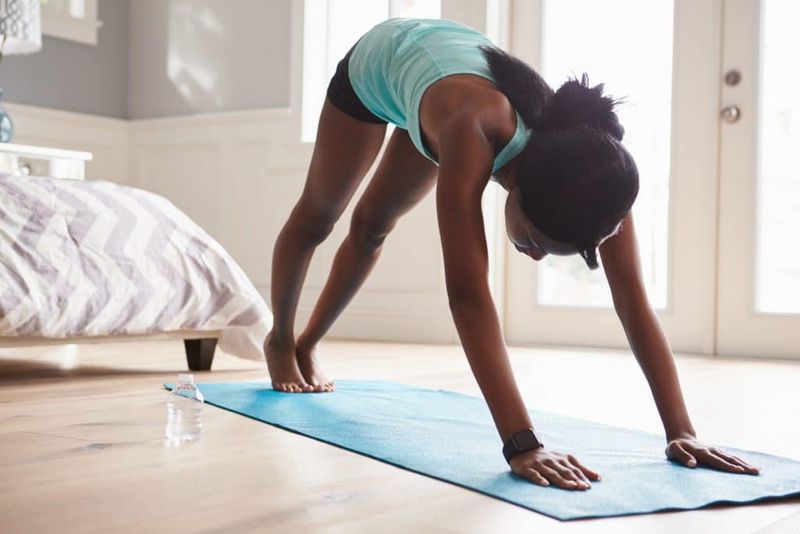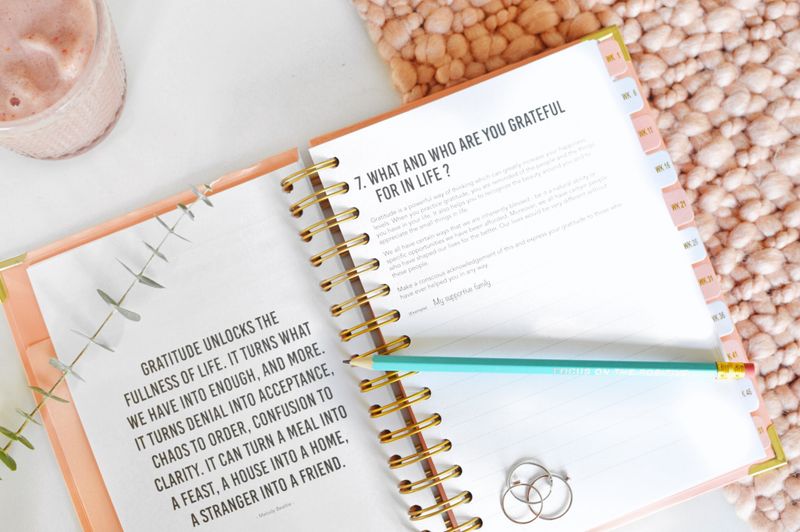22 Small Daily Habits That Add Up to Better Health Over Time

Small actions we take every day can have a huge impact on our health over time. Just like putting a few dollars in a savings account adds up to wealth, tiny healthy habits build up to create a healthier body and mind. You don’t need to make big, scary changes to see results – these simple daily practices are easy to start and maintain, even on your busiest days.
1. Drink a Glass of Water After Waking Up

Your body gets dehydrated during sleep, so that first glass of water is like rain on a dry garden. Drinking water first thing helps kickstart your digestion and flushes out toxins that built up overnight.
Many people notice they have more energy and clearer thinking when they start their day hydrated. It can also help prevent that mid-morning headache that sometimes sneaks up.
Keep a glass by your bedside so you remember this habit. Room temperature water is gentler on your empty stomach than ice-cold water. Some people like adding a squeeze of lemon for extra vitamin C and a refreshing taste.
2. Walk at Least 20 Minutes a Day

Fresh air and moving your body does wonders for both physical and mental health. A daily 20-minute walk gets your heart pumping and oxygen flowing through your body without feeling like a workout.
Walking helps control weight, strengthens bones, and even boosts your immune system. The rhythm of walking can also clear your mind and reduce stress, almost like a moving meditation.
Try walking during your lunch break, parking farther from store entrances, or taking an evening stroll around your neighborhood. No special equipment needed – just comfortable shoes and maybe a friend or podcast for company.
3. Stretch for 5–10 Minutes

Our bodies weren’t designed to sit all day, yet many of us do exactly that. A quick daily stretching routine wakes up tight muscles and keeps your body flexible as you age.
Focus on gentle stretches for your neck, shoulders, back, and legs – areas that often get stiff from sitting. Hold each stretch for 20-30 seconds without bouncing or forcing.
Morning stretches help prepare your body for the day ahead, while evening stretches can release tension and help you sleep better. You might be surprised how much better you feel after just a week of regular stretching – less pain, better posture, and more energy throughout your day.
4. Prioritize Sleep Hygiene

Sleep isn’t just rest – it’s when your body repairs itself and your brain processes the day’s information. Creating good sleep habits (sleep hygiene) makes a huge difference in how you feel and function.
Start by keeping a consistent sleep schedule, even on weekends. Your body loves routine! Make your bedroom a sleep sanctuary – cool, dark, and quiet. Remove electronics or use night mode to reduce blue light exposure.
Wind down with a calming pre-sleep ritual like reading, gentle stretching, or writing in a journal. Avoid caffeine after noon and heavy meals close to bedtime. These small changes help signal to your body that it’s time to rest, making falling asleep easier.
5. Eat Colorful Fruits and Vegetables with Each Meal

Mother Nature color-codes our nutrients! Different colored fruits and vegetables contain different vitamins and minerals your body needs. Adding just one serving to each meal adds up to 3+ daily servings without much effort.
Red foods like tomatoes and strawberries contain lycopene for heart health. Orange and yellow foods like carrots provide beta-carotene for healthy eyes and skin. Green vegetables offer folate and iron, while blue and purple foods are packed with brain-boosting antioxidants.
Start small – add berries to breakfast, a side salad at lunch, and roasted vegetables with dinner. Keep pre-cut veggies in your fridge for easy snacking and meal prep. Your body will thank you with better energy, clearer skin, and improved digestion.
6. Take the Stairs Instead of the Elevator

Stair climbing is a stealth workout hiding in plain sight! This simple swap burns calories, strengthens your legs and core, and improves your cardiovascular fitness without taking extra time from your day.
The beauty of this habit is that it fits naturally into your existing routine. Start with just one flight if you’re new to it, then gradually build up as your fitness improves. You might be surprised how quickly your body adapts.
Beyond the physical benefits, choosing stairs gives you a mental boost too. That small victory of choosing the harder option sets a positive tone for other healthy choices throughout your day. Plus, you’ll never have to wait for a broken elevator again!
7. Practice Good Posture Throughout the Day

Your grandmother was right – standing up straight really does matter! Good posture reduces strain on your muscles and ligaments, prevents backaches and fatigue, and even helps your organs function properly by giving them space.
Check your posture several times throughout the day. Are your shoulders relaxed? Is your back straight but not rigid? Are your feet flat on the floor when sitting? Small adjustments make a big difference over time.
Try setting posture reminders on your phone, or use natural cues like red lights while driving or commercial breaks during TV shows. Strengthening your core muscles through activities like yoga or pilates can make maintaining good posture easier and more natural over time.
8. Practice Deep Breathing for a Few Minutes Daily

Your breath is a powerful tool you carry everywhere! Deep breathing activates your body’s relaxation response, lowering stress hormones and blood pressure almost instantly. It’s like a reset button for your nervous system.
Try this simple technique: breathe in slowly through your nose for a count of four, hold for one, then exhale through your mouth for a count of six. Feel your belly expand on the inhale and contract on the exhale. Just 2-5 minutes can make a noticeable difference in how you feel.
Good times to practice include first thing in the morning, before important meetings, when stuck in traffic, or before bed. Some people find it helpful to pair breathing exercises with another daily activity, like brushing teeth, to help remember.
9. Write Down Things You’re Grateful For

Gratitude isn’t just a nice feeling – it’s brain training that actually rewires your thinking patterns! Taking a minute to write down 1-3 things you’re thankful for shifts your focus from what’s lacking to what’s good in your life.
Keep it simple and specific. Instead of “I’m grateful for my family,” try “I’m grateful my sister called to check on me today” or “I’m thankful for the delicious lunch I packed.” Small, everyday joys count just as much as big blessings.
Many people keep a gratitude journal by their bed and write in it either first thing in the morning or right before sleep. This practice has been linked to better sleep, fewer symptoms of illness, and greater happiness – pretty impressive for something that takes less than two minutes!
10. Set Boundaries on Social Media Time

The average American spends over two hours daily on social media – that’s a month of waking hours each year! While social platforms can connect us with others, too much scrolling often leaves us feeling worse, not better.
Start by becoming aware of your habits. How often do you check your phone? How do you feel afterward? Set specific times to check social media rather than mindlessly scrolling whenever you’re bored or uncomfortable.
Use your phone’s screen time features or apps that limit social media use. Replace some scrolling time with activities that actually boost your mood – calling a friend, going outside, reading, or pursuing a hobby. Your mental health (and free time) will thank you!
11. Read a Few Pages of a Book Daily

Reading is like a workout for your brain! Even just 10-15 minutes (about 5-10 pages) of daily reading strengthens your thinking skills, builds vocabulary, and improves focus in our distraction-filled world.
Fiction enhances empathy by letting you experience different perspectives, while non-fiction builds knowledge and critical thinking. Both types reduce stress by giving your mind a break from your own worries and to-do lists.
Keep a book on your nightstand, in your bag, or download e-books on your phone for easy access. Reading before bed is especially beneficial, as it helps signal to your body it’s time to wind down – much better than the stimulating blue light from screens!
12. Focus on One Task at a Time

Multitasking is actually a myth! Research shows our brains don’t truly do multiple things at once – they just switch rapidly between tasks, making us less efficient and more stressed in the process.
Single-tasking means giving your full attention to one activity before moving to the next. Try it with everyday activities like eating without scrolling, walking without checking emails, or having conversations without glancing at your phone.
You’ll likely notice you enjoy activities more when fully present, make fewer mistakes, and feel less scattered. Start small by identifying 2-3 daily activities you’ll commit to doing without distractions. This simple shift can reduce anxiety, improve your memory, and help you feel more in control of your day.
13. Challenge Your Brain with Games or Puzzles

“Use it or lose it” applies to brain function too! Mental exercises keep your mind sharp and may help prevent cognitive decline as you age. Just like your muscles need varied workouts, your brain thrives on different types of challenges.
Crosswords and word games strengthen language skills, while number puzzles enhance logical thinking. Strategy games improve planning abilities, and learning new skills forms fresh neural connections. Even just taking a new route home engages your spatial reasoning.
Aim for activities that are challenging but not frustrating. Start with 5-10 minutes daily of something you enjoy – a crossword over coffee, a sudoku during lunch, or a chess game before bed. Your brain will stay flexible and quick, giving you a cognitive edge now and protection for the future.
14. Send a Kind Message to Someone

Kindness creates a surprising ripple effect – the person receiving your message feels good, you feel good for sending it, and often they’re inspired to pass kindness along to others! This simple habit strengthens relationships and builds your social support network.
Your message doesn’t need to be elaborate. A quick text saying “Thinking of you today” or “Remember that time we…” lets someone know they matter. Specific compliments like “I admire how you handled that situation” are especially meaningful.
Try sending one thoughtful message each day to someone different – a family member, friend, coworker, or even a business you appreciated. The few seconds it takes can brighten someone’s entire day, including yours!
15. Have a Real Conversation with Someone You Care About

Humans are wired for connection! A meaningful conversation – even a short one – provides emotional nourishment we all need. Research shows strong social bonds contribute to longer, healthier lives and greater happiness.
Quality matters more than quantity here. A five-minute phone call where you’re fully present beats an hour-long distracted chat. Ask open-ended questions that can’t be answered with just “yes” or “no,” and really listen to the responses without planning what you’ll say next.
Make this habit part of your routine – perhaps calling a different friend each day during your commute, having family dinner conversations without devices, or scheduling regular video chats with distant loved ones. These connections provide a buffer against stress and remind you you’re not facing life’s challenges alone.
16. Practice Active Listening in Every Conversation

Most people listen with the intent to respond rather than to understand. Active listening flips this script – you focus completely on the speaker, absorbing not just their words but their tone, body language, and the feelings behind what they’re saying.
Show you’re listening by maintaining eye contact, nodding occasionally, and asking clarifying questions. Resist the urge to interrupt or immediately share similar experiences. Instead, try reflecting back what you heard: “It sounds like you’re feeling…”
This practice transforms relationships by making others feel truly seen and valued. It also helps you gather better information and avoid misunderstandings. Like any skill, active listening improves with practice – start with one conversation daily where you commit to listening more than speaking.
17. Plan Your Top 3 Priorities Each Morning

Starting your day without direction is like taking a road trip without a map – you might enjoy the ride, but you probably won’t end up where you wanted to go! Taking just two minutes to identify your most important tasks creates clarity and purpose.
Each morning, ask yourself: “If I could only accomplish three things today, what would make the biggest positive difference?” Write these priorities down where you’ll see them throughout the day. This simple act helps you focus your limited time and energy on what truly matters.
When distractions inevitably arise, your priority list serves as a compass to get back on track. You’ll finish each day with greater satisfaction knowing you completed what was most important, rather than just what was most urgent.
18. Tidy Your Space for Five Minutes Daily

A cluttered environment creates a cluttered mind! Even a quick five-minute cleanup can reduce stress and help you feel more in control of your surroundings. The key is consistency – small daily actions prevent mess from becoming overwhelming.
Focus on high-impact areas first – clear countertops, make your bed, or organize your desk. Put things back where they belong after using them instead of creating “I’ll deal with it later” piles. Having designated homes for common items saves time searching for misplaced things.
Try habit stacking – attach your tidying routine to something you already do daily, like cleaning the kitchen while waiting for coffee to brew or straightening up before brushing your teeth at night. You’ll be surprised how these small efforts compound into a noticeably more peaceful living space.
19. Track One Health Metric Every Day

What gets measured gets managed! Tracking just one aspect of your health creates awareness that often naturally leads to better choices. The simple act of recording makes you more mindful about your habits throughout the day.
Choose something meaningful but manageable – water intake, steps, hours of sleep, mood on a 1-10 scale, or minutes of movement. Use whatever tracking method works for you, whether it’s an app, a journal, or checkmarks on a calendar.
The goal isn’t perfection but awareness. Notice patterns over time – maybe you sleep better on days you exercise, or your mood improves when you drink enough water. These insights help you understand your body’s unique needs and make adjustments that support your wellbeing.
20. Get Up Right When Your Alarm Goes Off

The snooze button is not your friend! Those extra nine minutes of fragmented sleep actually make you groggier, not more rested. When you hit snooze, your body starts a new sleep cycle it can’t finish, leaving you with sleep inertia – that zombie-like feeling that can last for hours.
Place your alarm across the room so you have to get up to turn it off. Once you’re up, open curtains to let in natural light, which helps reset your body clock. Some people find it helpful to prep the coffee maker the night before as an incentive to get moving.
The first few days of this habit are the hardest, but most people report feeling more alert throughout the day after just a week of consistent wake-ups. Your body loves routine!
21. End Each Day with a Brief Reflection

Taking a few moments before sleep to reflect on your day is like closing the mental tabs on your browser – it helps your brain process experiences and prepare for rest. This simple practice builds self-awareness and gratitude while reducing next-day anxiety.
Ask yourself: “What went well today?” (celebrating wins, however small), “What did I learn?” (turning challenges into growth), and “What would I do differently?” (without harsh self-judgment). Some people prefer writing these reflections down, while others just think through them.
This habit helps you recognize patterns, appreciate progress, and set intentions for tomorrow. Over time, you’ll develop greater emotional intelligence and a clearer sense of what truly matters to you.
22. Drink a Glass of Water Before Each Meal

This two-second habit packs multiple health benefits into one simple action! Drinking water before eating helps you distinguish between thirst and hunger (which often feel similar), potentially preventing unnecessary snacking.
Water before meals aids digestion by preparing your stomach and digestive enzymes for food. It also creates a mild feeling of fullness that can help with portion control if weight management is a goal. Many people find they enjoy their food more when properly hydrated.
Keep water easily accessible – a filled bottle on your desk or table serves as both a visual reminder and convenience. Adding a slice of fruit or herb like mint can make it more appealing if you find plain water boring. This tiny habit adds up to 3+ extra glasses of hydration daily!

Comments
Loading…